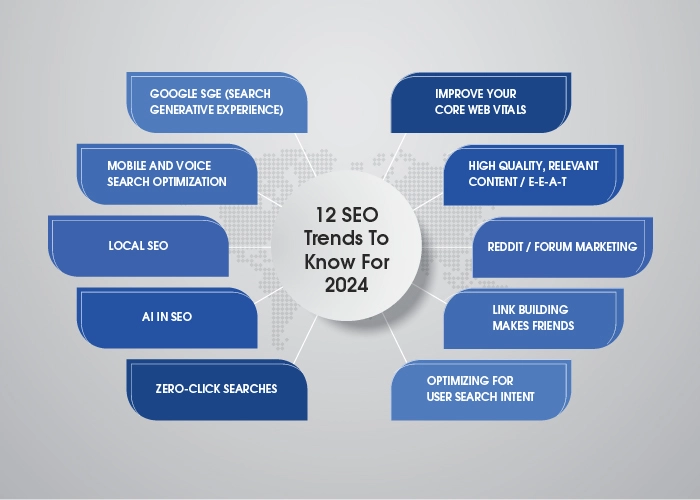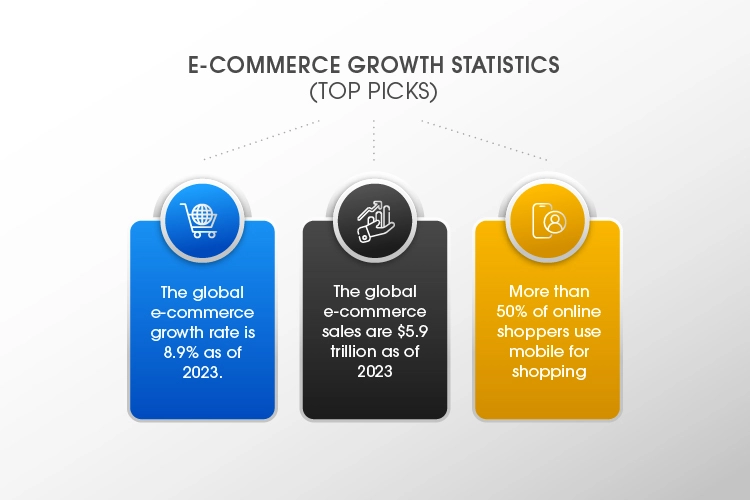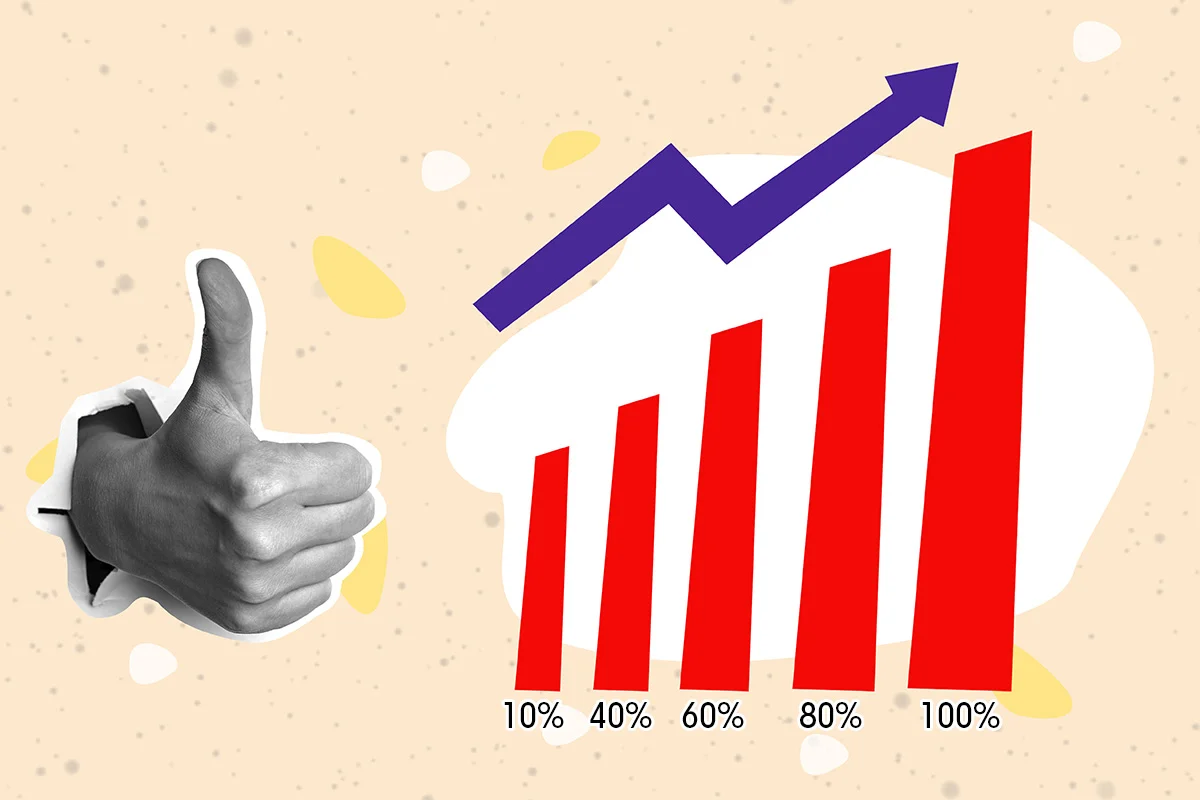5 Quick Advanced SEO Strategies for Unstoppable Organic Traffic
• Determine which keywords are most relevant.
• Write titles and descriptions that are compelling.
• Make sure that mobile-friendliness is a top priority.
• Establish backlinks of superior quality.
• Revitalize the content you have.
Did you know that SEO (Search Engine Optimization) can exponentially increase your online store visibility? And also bring organic traffic without targeted spending on the advertisement. It’s true! By using the right keywords and optimizing product pages, you may tap the market of people who are already driven to buy and are only waiting to find your product.
Think of your store appearing at the first position in search results when customers search for products you sell. This is exactly what an ideal SEO does. Today, we will share our blog on how to incorporate the finest strategic SEO practices to increase your unstoppable organic traffic, but first, let’s define SEO.
What is SEO?
SEO simply refers to Search Engine Optimization. It is the method which helps you to be more visible and come up higher on search engine results pages (SERPs) without paying for ads in an organic way. It works in the interest of a website owner to improve both quantity and quality of traffic by optimizing the on and off-site elements. This includes page content, relevancy, and authority, which are used by search engines like Google and Bing to rank websites.
How does it Work?
SEO uses a number of approaches, like keyword research, on-page optimization (through Meta tags, titles, headers, content, and images), technical SEO (site structure, crawlability, indexing), off-page SEO (backlinks, social media and local citations), and user experience optimization (site speeds, mobile friendliness, accessibility, etc.).
How to Increase Organic Traffic?

E-commerce SEO services help online businesses improve their visibility and ranking on search engine results pages. These points will help your e-commerce business succeed.
1. Keyword Research
Identification of targeted keywords (a comprehensive keyword analysis) is key in SEO optimization. Specialized professionals identify high-level keywords, and key phrases and track them in order to optimize your website content and product listings.
2. On-Page Optimization
It is this aspect of web development which allows you to improve your website’s title tags, Meta descriptions, header tags, image alt tags and content. Appropriate on-page optimization will enable search engines to understand your website and its importance, especially to the queries issued by users.
3. Technical SEO
This one will target making your website more dependent, speedy and crawler-friendly. It refers to the process of improving your site map, interlinking, HTML code, and translation into a mobile version.
4. Link Building
Achieving search engine ranking requires constructing relevant website links from reliable sources. Digital marketing companies use link-building strategies, such as guest posting, link exchanges, and content marketing, through which they conduct SEO operations.
5. Local SEO
To be on the first place of local search results go to local SEO if you have your store somewhere. Services will take care of your Google My Business listing, citations and local keyword optimization.
6. Competitor Analysis
Repeated ananlysis of competitors’ SEO strategies not only helps to channel your strengths but also offers good hints on how to strengthen your own.
7. Reporting and Analytics
By using the team reporting and data analysis functions, you can get the website performance information including keyword position and traffic details easily. This information can be exploited for SEO methodological effective improvement and for the evaluation of the efficiency of the campaign as well.
With SEO, you can gain not only more visibility on the Internet but also more organic visitors as well as increased sales. You may give your online store an equal chance of success among all the other e-commerce companies by forming agency collaborations with some of the top SEO companies.
Do you want to know a few Digital E-commerce Marketing Techniques?

In the digital age we are living we can say that e-commerce is on the rise of popularity. To survive in the marketplace under such conditions, businesses must apply appropriate marketing tactics. The following are digital e-commerce marketing tips that you can implement.
1. Social Media Marketing
Recognize the potential reach of different social media platforms like Facebook, Instagram or Twitter to get access to your audience. Generate good content, run ads, and combine efforts with influencers.
2. The field of Search Engine Optimization (SEO)
Minimize the cost of advertising on popular search engines such as Google as well as Bing. Opt for keywords that are popularly searched, write good content and provide a smooth user interaction.
3. Pay-Per-Click (PPC) Advertising
Use Google Ads and Facebook Ads PPC to attract people to your website. Bid on keywords relating to your industry. Then create ads that are truly attractive.
4. Email Marketing
Develop an email list and send out promotional emails to those on your subscriber lists. Provide special offers, such as upcoming product releases, or individualized content to consumers.
5. Content Marketing
Create the content that is necessary as blog posts, videos and infographics to invite your audience and customers. Use tons of SEO techniques on your presented content and then post it on social media platforms.
6. Influencer Marketing
Collaborate with the influencers who are already with the trends in the targeted niche you have and assign them to market your products or services. This will create a stronger image within the minds of customers and hence helps in increasing sales.
7. Retargeting
Make sure you have an audience of consumers who will be the result of the power of your marketing. Apply retargeting ads to remind them of your products and motivate them to buy.
If you are willing to apply these digital e-commerce marketing techniques properly, your online business can surely promote more products and get the sales it needs. Watch your outcome, experiment to find what works and then, constantly adjust and improve your efforts to obtain the best results.
Social Media Marketing Strategies
Social media platforms are a vital instrument of e-commerce to expand the customer base and increase the company’s revenue. Effective strategies include:
- Determining your target audience, which includes their preferences, characteristics, demographics, and behaviours.
- Creating engaging content
- Using influencer marketing
- Usage of pay algorithm ads is the most natural and potent digital advertising format
- Reviewing and interpreting/evaluating outcomes
Let’s look at LinkedIn Advertising.
LinkedIn is a strong tool for B2B e-commerce companies. To maximize its potential you can follow these steps.
- Define your target audience
- Create compelling ad copy
- Optimize your landing pages
- Track and measure results
- Continuously refine your strategy
Must-Have E-commerce SEO Tools for Success
Tools are essential for any task. These tools can save time and effort and without them, it is hard to achieve the desired outcomes. Use these essential tools for improving your e-commerce website:
- Google Search Console
- Ahrefs
- Moz Pro
- SEMrush
- Screaming Frog
- Google Analytics
Conclusion
Using SEO and digital marketing is the first step towards e-commerce success. Monitoring your coping skills is a crucial part of your development. To ensure general progress, you must think critically and evaluate your results on a monthly, if not weekly, basis in order to re-strategize.







